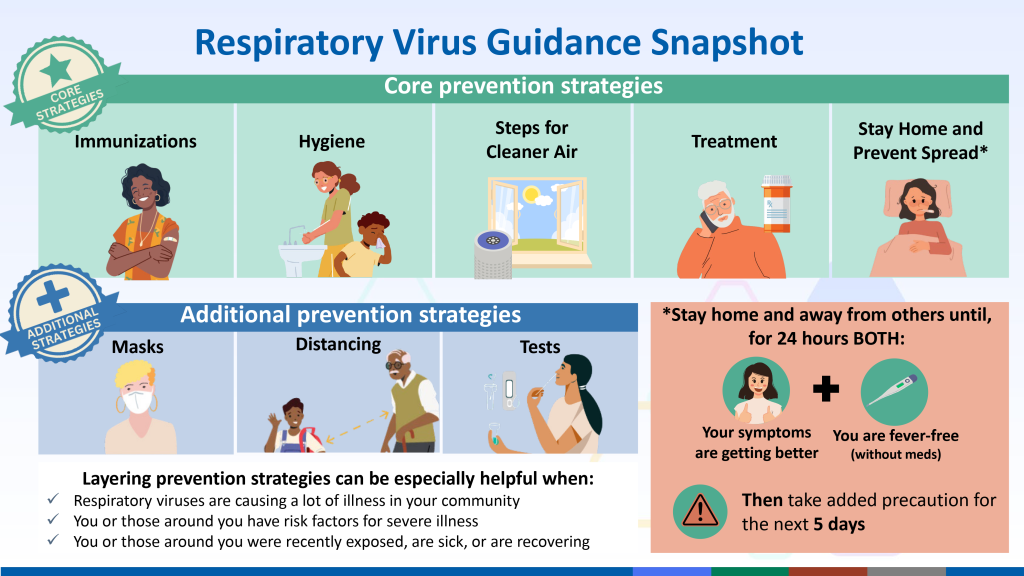On Friday, March 1, CDC released updated guidance for respiratory viruses, that including standardizing the isolation guidelines for COVID-19, flu, and RSV:
- When you think you have a respiratory illness like the flu or COVID-19, you should stay home and away from others until you feeling better overall and you have been fever-free for 24 hours without fever-reducing medications.
Standardizing this guidance helps you take immediate steps to keep your loved ones healthy when you’re sick, even if you don’t have a test available to figure out which illness you’ve contracted.
Take these precautions to avoid contracting a respiratory virus
- Stay up-to-date with vaccines for COVID-19, flu, and RSV. Call 804-205-3501 to schedule an appointment at an RHHD clinic.
- Practice good hygiene: Wash your hands for a full 20 seconds with soap and water, cover any coughs and sneezes, and disinfect frequently used surfaces.
- Improve ventilation by opening windows or spending time outside.
Ask yourself these questions before returning to normal activities:
- Are my symptoms clearly getting better? These could include sneezing, coughing, fatigue, or muscle aches. Not every case of respiratory illness will cause a fever.
- If I have had a fever, have I been fever-free for a whole day without using fever-reducing meds like Tylenol or ibuprofen?
When you return to normal activities, take these precautions for 5 more days.
- Wear a well-fitting mask.
- Continue to practice good hand and respiratory hygiene.
- Take social events outside or keep distance from others.
- Plan to test for COVID before events or close interactions.
These steps will help keep your loved ones and neighbors safe, especially those who are at high-risk of serious illness.

